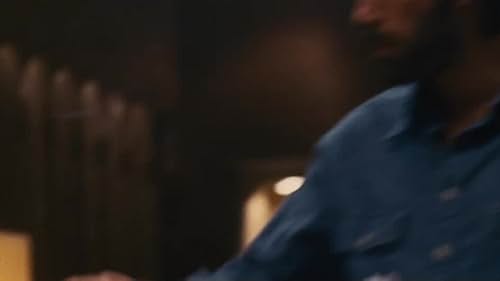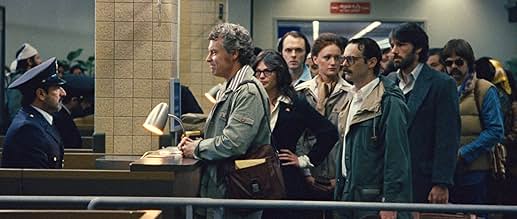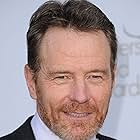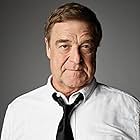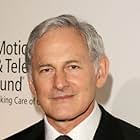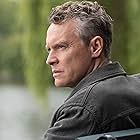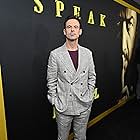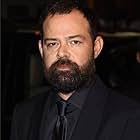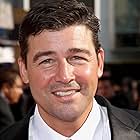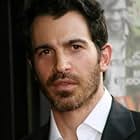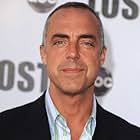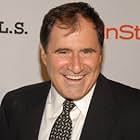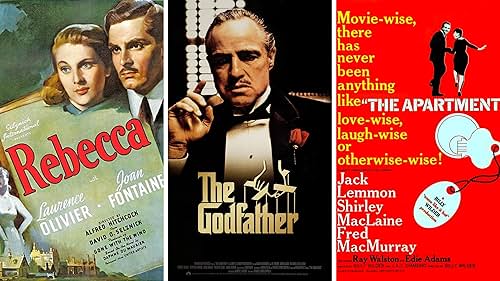Un agente della CIA finge di essere un produttore cinematografico per salvare sei cittadini americani in pericolo a Teheran durante la rivoluzione del 1979.Un agente della CIA finge di essere un produttore cinematografico per salvare sei cittadini americani in pericolo a Teheran durante la rivoluzione del 1979.Un agente della CIA finge di essere un produttore cinematografico per salvare sei cittadini americani in pericolo a Teheran durante la rivoluzione del 1979.
- Vincitore di 3 Oscar
- 96 vittorie e 156 candidature totali
Best Picture Winners by Year
Best Picture Winners by Year
Trama
Lo sapevi?
- QuizIn an interview with Piers Morgan, former President Jimmy Carter said that he believes the film was a "great drama", and it deserved to win an Oscar for best film. However, Carter noted that although "ninety percent of the contributions to the ideas, and the consummation of the plan was Canadian", the film "gives almost full credit to the American C.I.A. With that exception, the movie's very good," Carter said, but "the main hero, in my opinion, was Ken Taylor, who was the Canadian ambassador, who orchestrated the entire process."
- BlooperIt is stated that the British and New Zealand embassies refused to help staff from the American embassy. This was not true. Both the British and the New Zealand embassies sheltered the Americans, then helped to pass them on to the Canadians. Britain's Arthur Wyatt was later awarded the Companion of the Order of St. Michael and St. George for the risks that he took.
- Citazioni
LA Times Reporter: What does the title refer to?
Lester Siegel: The Argo. You know, it's the thing.
LA Times Reporter: Like Jason and the Golden Fleece, or what?
Lester Siegel: No, no. It's the ship. It's the spaceship. It goes everywhere. It goes all throughout space.
LA Times Reporter: So, it's Argonaut.
Lester Siegel: No.
LA Times Reporter: What does Argo mean?
Lester Siegel: I don't know.
LA Times Reporter: You don't know?
Lester Siegel: It means "Argo fuck yourself."
- Curiosità sui creditiPast the photos of cast members and the real people they play, there's audio from an interview with then-President Jimmy Carter talking about the crisis.
- Versioni alternativeAfter it screened at the Toronto International Film Festival, the postscript at the end credits was changed because it was felt that it slighted Canada's involvement in the rescue of the American hostages.
- ConnessioniFeatured in The Tonight Show with Jay Leno: Episodio #21.11 (2012)
- Colonne sonoreUpside Down
from Nella valle di Elah (2007)
Written by Mark Isham
Courtesy of Warner Bros. Entertainment Inc./Summit Entertainment, LLC
The film opens with an American embassy in Iran being stormed and the majority of people taken hostage, except a small group who flee to the home of the Canadian Ambassador and are hidden. The story is then about the extradition of this small group, before the Iranians work out that they are missing and hunt them down; with options limited, the plan is to send an agent into Iran posing as someone scouting for locations for a movie – and then leave the country with the small group acting as his colleagues and peers. This involves doing more than saying it out loud as it has to pass muster with the Iranians – so the CIA works with a Hollywood writer and a producer to greenlight a film, sell it to the press and take their small production into Iran. In telling the story the film pretty much plays it straight and allows the scenario to be whatever it is – so when it is a press junket then it is amusingly absurd but while it is in an Iranian airport it is really tense and the stakes are apparent. This approach works pretty well because it lets the film have these extremes alongside one another without one undercutting the other. The downside is that it does occasionally mean that the telling feels quite "ordinary" as it lacks an individual voice to the delivery – not boring by any means, but just surprisingly straight in the telling.
This can be seen in the cast because mostly there are not really characters here, since the film focuses on events and doesn't leave a lot of time for the people (understandably). Affleck doesn't really work in the lead and I'm not sure why he cast him; he is OK but his presence is not all it needed to be in such a straight film. The various hostages in Iran don't really make an impression beyond them being just that, but there is color provided by solid turns from Goodman, Cranston, Arkin and a few others. As director Affleck does a good job to make the mix of content work so well, but the real credit to the production is how of the period it feels – there is nothing that really seems out of place, from office to street it feels like it was filmed back in the late 70s.
Argo is an effective and engaging story that works partly because the telling is straight enough to let the events be however they are (absurd, tense, whatever). However this straight bat does also limit the film by making it feel a little ordinary in the delivery, without much flair or individual style to the telling, even if the attention to period is really well done.
- bob the moo
- 29 gen 2013
- Permalink
I più visti
Dettagli
- Data di uscita
- Paesi di origine
- Sito ufficiale
- Lingue
- Celebre anche come
- Escape from Tehran
- Luoghi delle riprese
- Aziende produttrici
- Vedi altri crediti dell’azienda su IMDbPro
Botteghino
- Budget
- 44.500.000 USD (previsto)
- Lordo Stati Uniti e Canada
- 136.025.503 USD
- Fine settimana di apertura Stati Uniti e Canada
- 19.458.109 USD
- 14 ott 2012
- Lordo in tutto il mondo
- 232.325.503 USD
- Tempo di esecuzione2 ore
- Colore
- Mix di suoni
- Proporzioni
- 2.39 : 1






